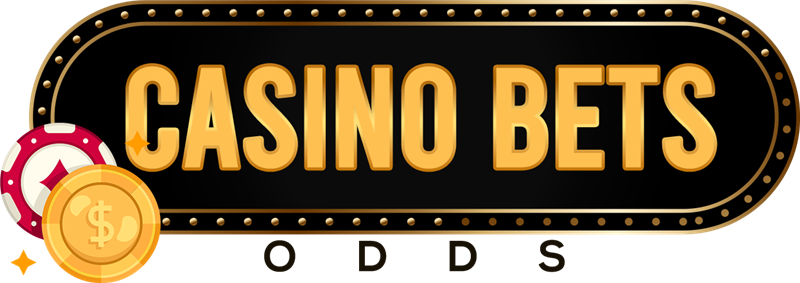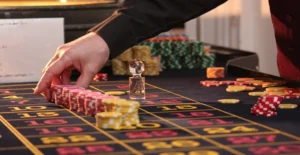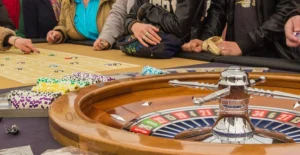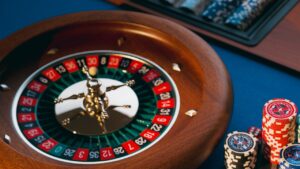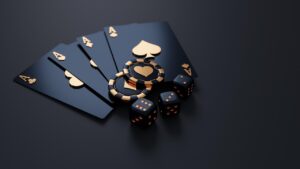Many people wonder if it’s possible to win at blackjack without counting cards. The good news is, yes, it is. While card counting is a known method, it’s not the only way to get an edge. This article will show you how to win at blackjack without counting cards by using smart strategies and making good choices at the table. You can improve your game and increase your chances of winning, even if you’re not a math wizard.
Key Takeaways
- Mastering basic strategy is the most important step to improving your game.
- Always split Aces and Eights to give yourself the best chance.
- Avoid the ‘insurance’ bet; it usually works against you.
- Look for tables with favorable rules, like those that pay 3:2 for blackjack.
- Manage your money carefully to stay in the game longer.
Understanding Blackjack Basics
Blackjack might seem simple at first glance, but there’s more to it than just getting to 21. Knowing the rules and the flow of the game is the first step in developing any blackjack strategy for beginners. Let’s break down the core elements.
- The goal is to beat the dealer, not necessarily get 21. You win if you have a higher hand than the dealer without going over 21, or if the dealer busts (goes over 21).
- Card values are straightforward: Numbered cards are worth their face value, face cards (Jack, Queen, King) are worth 10, and Aces can be worth either 1 or 11.
- A blackjack (an Ace and a 10-value card) pays out 3:2, unless the dealer also has blackjack, in which case it’s a push (tie).
Understanding these basics is important. It’s not just about knowing what to do, but why you’re doing it. This knowledge forms the foundation for all your future decisions at the blackjack table.
Knowing when to hit, stand, double down, or split is important. These decisions are based on your hand and the dealer’s upcard. There are many easy blackjack tips and tricks to learn, but understanding the basics is the most important.
Why Not Counting Cards Doesn’t Hurt
Many people think that to win at blackjack, you have to count cards. It’s become almost synonymous with the game itself, thanks to movies and popular culture. But the truth is, you can absolutely improve your odds and even win without ever keeping a mental tally of the deck. It’s not the only path to success, and in some ways, it might even be a less stressful one.
Casinos have gotten wise to card counters. They use multiple decks, shuffle more frequently, and employ detection methods. This makes card counting a lot harder than it used to be. Plus, if you get caught, you might be asked to leave. Focusing on other strategies can be more sustainable and less risky.
Think of it this way: card counting is like trying to predict the weather by staring at the clouds. It might give you a slight edge, but there are so many other factors at play that it’s not a guaranteed win. Other strategies are like using a reliable weather forecast – they give you a more solid foundation for making informed decisions.
Here’s why skipping card counting isn’t a disadvantage:
- It simplifies the game: You can focus on making the best decisions based on the cards in front of you, rather than trying to track every card that’s been dealt.
- It reduces stress: Constantly calculating in your head can be mentally exhausting. Without that pressure, you can enjoy the game more.
- It avoids suspicion: Casinos are less likely to notice you if you’re not making drastic bet changes based on the count.
Instead of counting, you can focus on mastering basic strategy, managing your bankroll, and taking advantage of casino perks. These methods, when used together, can significantly improve your chances of winning. You can learn how to play blackjack and win without counting cards.
Use a Basic Strategy Chart: Your Key to Winning Decisions
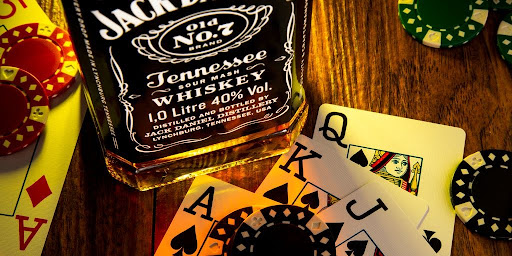
Blackjack isn’t just about gut feelings; it’s a game of calculated probabilities. Using a basic strategy chart is the smartest way to make decisions at the table. These charts are derived from computer simulations that have played millions of blackjack hands, determining the optimal action for every possible player hand versus dealer upcard combination. Think of it as a cheat sheet, but one that’s legal and encouraged.
Why is it so important? Consistently following a basic strategy minimizes the house edge, giving you the best possible chance of winning in the long run. It won’t guarantee a win every time, but it will significantly improve your odds compared to playing by intuition alone. You can find casino Blackjack information online.
Here’s why you should embrace the basic strategy chart:
- It removes guesswork: No more agonizing over whether to hit or stand. The chart tells you exactly what to do based on the cards you and the dealer have.
- It’s easy to learn: Basic strategy charts are readily available online and in casino gift shops. Many are even color-coded for quick reference.
- It’s adaptable: While the core strategy remains the same, some charts are tailored to specific rule variations (like whether the dealer hits or stands on a soft 17). Make sure you’re using the right chart for the game you’re playing.
Using a basic strategy chart is not a magic bullet. It doesn’t eliminate the house edge, but it does reduce it to its lowest possible level. It’s a foundational tool for any serious blackjack player.
To illustrate, here are a few common scenarios and the corresponding basic strategy plays (assuming standard rules):
- If you have a hard 16 and the dealer shows a 7 or higher, you should hit.
- If you have a hard 12 and the dealer shows a 4, 5, or 6, you should stand.
- Always hit if you have a hand of 11 or less.
Always Split Aces and Eights
This is a pretty simple rule to remember, and it can really improve your odds. Always split aces and eights, no matter what the dealer is showing. Let’s break down why:
- Aces: Splitting aces gives you two chances to get a blackjack. Starting with 11 is a great advantage, and you want to maximize that.
- Eights: A pair of eights gives you a hard 16, which is one of the worst hands in blackjack. Splitting them gives you two chances to make a decent hand, or even a great one.
- It’s a simple rule to remember, and it can improve your odds.
Think of it this way: you’re turning one bad hand into two potentially good hands. It’s an aggressive move, but it’s statistically the best play in the long run.
Some people get nervous about splitting, especially when they have a high bet out there. But trust the math. Splitting aces and eights is almost always the right play. If you are unsure about the blackjack early payout, this is a good rule to start with.
Double Down Smartly on 10 or 11
Doubling down can seriously boost your winnings, but it’s not a free pass. It’s about picking the right spots. You’re doubling your bet in exchange for receiving only one more card. So, you want to do this when you have a good chance of ending up with a strong hand.
When to Double Down
- With a hard 11: Always double down if you have a total of 11. You’ve got a great shot at hitting 21, and even if you don’t, you’ll likely end up with a decent hand.
- With a hard 10: Double down if the dealer shows a 2 through 9. The odds are in your favor that the dealer will bust, or you’ll get a high card to make a strong hand.
- With a hard 9: This one’s a bit more situational. Double down if the dealer shows a 3 through 6. These are weak upcards for the dealer, increasing your chances of winning.
Doubling down is a strategic move, not a gamble. It’s about maximizing your potential when the odds are in your favor. Don’t just double down because you feel lucky; double down because the math supports it.
When Not to Double Down
- Against a dealer’s 10 or Ace: These are strong dealer cards. Doubling down gives the house too much of an edge.
- When you have a soft hand: Soft hands (hands with an Ace counted as 11) are trickier. While there are some situations where doubling on a soft hand is correct, it’s best to avoid it unless you’re using a basic strategy chart and know the specific situation.
- When unsure: If you’re not sure, don’t do it. It’s better to play it safe than to risk doubling your bet on a bad hand.
The Importance of Table Rules
Some casinos have rules that affect doubling down. For example, some casinos only allow you to double down on 10 or 11, while others let you double on any two cards. Knowing the table rules is important for making the right decision. Also, be aware of the number of decks in play. The more decks, the harder it is to predict the outcome, so adjust your strategy accordingly. Remember, the goal is to choose to double down when the odds are in your favor, increasing your potential winnings while minimizing risk.
Avoid Insurance Bets: Don’t Let Casinos Squeeze Advantage
Insurance in blackjack is often presented as a safety net, but it’s more like a trap. When the dealer’s upcard is an Ace, you’re offered insurance, which is essentially a side bet that the dealer has a ten-value card in the hole. It pays 2:1, but the odds are not in your favor. Let’s break down why you should usually avoid this bet.
The house edge on insurance bets is significantly higher than the base game.
Casinos love offering insurance because it pads their profits. It preys on players’ fears of losing to a dealer’s blackjack, but statistically, it’s a bad move. Understanding the math behind it is key to making informed decisions at the table. You should also learn about the blackjack mistakes to avoid.
Insurance is a sucker bet. While it might seem appealing to protect your hand, the odds are stacked against you. Over the long run, you’ll lose more money taking insurance than you’ll save.
Here’s why:
- The probability of the dealer having a ten-value card is less than 1/3.
- The payout of 2:1 doesn’t accurately reflect the true odds.
- Taking insurance increases the house edge.
Think of it this way: you’re betting half your original wager that the dealer has a ten-value card. If they do, you win your insurance bet, but lose your original bet (or push if you also have blackjack). If they don’t, you lose your insurance bet and continue playing your original hand. The math simply doesn’t add up in your favor over time. It’s better to stick to a basic strategy and manage your bankroll wisely. You can also learn about surrender in blackjack to help you make better decisions.
Choose Tables with Favorable Rules
Not all blackjack tables are created equal. The rules in place can significantly impact the house edge, and therefore, your chances of winning. It’s worth taking a few minutes to survey the available tables and pick one that gives you the best possible odds. Seriously, this is low-hanging fruit when it comes to improving your blackjack odds.
Here’s what to look for:
- Blackjack Payout: Always choose tables that pay 3:2 for blackjack, not 6:5. The 6:5 payout increases the house edge considerably.
- Dealer Stands on Soft 17: Tables where the dealer must stand on a soft 17 (an Ace and a 6) are more favorable to the player than those where the dealer hits.
- Double Down Options: Look for tables that allow you to double down on any two cards. Some casinos restrict doubling down to only hard 10s and 11s.
- Resplitting Aces: The ability to resplit Aces, though rare, is a very favorable rule for the player.
Taking the time to find a table with good rules is one of the easiest ways to reduce the house edge and improve your chances of winning at blackjack. Don’t just sit down at the first open spot you see. A little bit of research can make a big difference.
It might seem like these small rule differences don’t matter much, but they add up over time. For example, the difference between a 3:2 and 6:5 blackjack payout can increase the house edge by over 1%. That’s a huge difference in a game where the house edge is already so small with basic strategy.
Manage Your Bankroll
Effective bankroll management is paramount to long-term success at the blackjack table. It’s not just about how you play your hands, but also about how much you stake on each bet. Without a solid plan, even the best blackjack strategy can fall apart.
Set a Budget and Stick to It
Before you even approach a blackjack table, decide on a specific amount of money you’re willing to risk. Treat this money as entertainment expenses, not as an investment. Once you’ve reached your limit, walk away, regardless of whether you’re winning or losing. This prevents chasing losses and making impulsive decisions.
Determine Your Bet Size
Your standard bet should be a small percentage of your total bankroll. A common recommendation is to bet no more than 1-5% of your bankroll on any single hand. For example, if you have a $500 bankroll, your bets should be in the $5-$25 range. This approach helps to weather inevitable losing streaks without depleting your funds too quickly. Proper bankroll management is key to longevity in the game.
Avoid Chasing Losses
It’s tempting to increase your bets after a loss to recoup your money quickly, but this is a dangerous strategy. Chasing losses often leads to even bigger losses. Stick to your predetermined bet size, regardless of recent outcomes. Remember, each hand is independent, and past results have no bearing on future ones.
Blackjack involves both luck and skill. Even with perfect strategy, losing streaks happen. Bankroll management is about mitigating the impact of those streaks and ensuring you can continue playing when the odds turn in your favor.
Know When to Quit
Setting time limits is also important. It’s easy to lose track of time when you’re engrossed in a game. Playing shorter sessions can help you stay focused and avoid making poor decisions due to fatigue or frustration. If you find yourself getting emotional or no longer enjoying the game, it’s time to take a break or quit for the day. Don’t let negative emotions cloud your judgment. Here’s a simple table to illustrate how session length can impact decision-making:
| Session Length | Focus Level | Decision Quality |
| 1 Hour | High | Good |
| 3 Hours | Medium | Fair |
| 5+ Hours | Low | Poor |
Take Advantage of Bonuses and Rewards
When playing online, look for casinos that offer blackjack bonuses and loyalty programs. These can provide extra value and extend your playing time. However, always read the terms and conditions carefully, as bonuses often come with wagering requirements. Also, be aware of how the cards are shuffled, as continuous shuffling machines can negatively impact your odds in land-based casinos. Make sure the betting limits are suitable for your bankroll.
Capitalize on Casino Bonuses & Comps
Casinos are always trying to get you in the door, and they’re willing to give away some value to do it. It’s important to understand how to take advantage of these offers to boost your blackjack winnings. Don’t leave money on the table!
Always read the fine print associated with any bonus or comp offer.
- Sign-up Bonuses: These are often the most lucrative. Casinos offer them to new players as an incentive to join. Look for the best match percentage and the lowest wagering requirements. Be aware that blackjack may contribute less to fulfilling these requirements than slots.
- Reload Bonuses: Offered to existing players when they make additional deposits. They’re usually smaller than sign-up bonuses, but still worth claiming.
- Loyalty Programs: Most casinos have loyalty programs where you earn points for your play. These points can be redeemed for cash, comps (like free meals or hotel stays), or merchandise. Make sure you sign up for the casino’s loyalty program before you start playing.
It’s easy to get excited about free money, but remember that casino bonuses come with strings attached. Wagering requirements, game restrictions, and time limits are common. Always understand the terms before you claim a bonus, or you might find yourself unable to withdraw your winnings.
- Comps: Don’t be afraid to ask for comps! If you’re playing for a decent amount of time and at a reasonable stake, a pit boss may be willing to offer you a free meal or show tickets. It never hurts to ask politely.
- Promotions: Casinos run promotions all the time, such as double points days or drawings for prizes. Keep an eye on the casino’s website or sign up for their email list to stay informed about these opportunities.
By strategically using casino bonuses and comps, you can effectively reduce the house edge and increase your chances of winning at blackjack. Just remember to play responsibly and always read the terms and conditions.
Table Selection: Avoid Busy or High-House-Edge Games
Choosing the right blackjack table is more important than many people realize. It’s not just about finding an empty seat; it’s about finding a game that gives you the best possible chance of winning. Some tables have rules that are more favorable to the player, while others are designed to increase the casino’s advantage. Similarly, the pace of the game can impact your bankroll and decision-making.
Selecting the right table can significantly improve your odds.
When you’re at the casino, take a moment to observe the different tables. Don’t just jump into the first open spot you see. Pay attention to the rules, the number of players, and even the dealer’s demeanor. All of these factors can influence your overall experience and your chances of walking away a winner.
Picking the right table is a skill. It’s about understanding the subtle differences between games and using that knowledge to your advantage. It’s not about luck; it’s about making informed decisions that will pay off in the long run.
Here are some things to keep in mind when choosing a blackjack table:
- Avoid tables with continuous shuffle machines (CSMs). These machines shuffle the cards after every hand, making card counting impossible and slightly increasing the house edge. If you’re not counting cards, it still removes some of the predictability from the game.
- Look for tables where the dealer stands on soft 17. This rule is more favorable to the player than when the dealer hits on soft 17. The difference might seem small, but it adds up over time.
- Consider the number of players. A table with fewer players will generally result in more hands per hour, which can be good or bad depending on your strategy and bankroll. A slower game gives you more time to think, but a faster game can increase your potential winnings (or losses).
It’s also a good idea to avoid overly crowded tables or where the players seem inexperienced. A crowded table can slow down the game and make it harder to concentrate. Inexperienced players can make mistakes that affect the entire table, so it’s best to steer clear. Also, be sure to understand blackjack variants before sitting down.
Use Composition-Dependent Plays
Okay, so you’ve got the basic strategy down. You’re splitting pairs, doubling when you should, and avoiding those sucker insurance bets. But if you want to up your blackjack game, it’s time to think about composition-dependent plays. This is where things get a little more interesting and a bit less straightforward.
Composition-dependent strategy means you’re not just looking at your hand total and the dealer’s upcard. You’re also considering the specific cards that make up your hand. For example, a hard 16 made up of 10-6 is different than a hard 16 made up of 8-4-4. Why? Because the 10-6 hand has already removed a valuable card from the deck, making it slightly less likely that the dealer will bust. It’s all about tiny edges, but they add up over time.
Thinking about composition-dependent plays can feel like a lot at first, but it’s about refining your decisions based on the cards you’ve already seen. It’s not about counting cards, but about being more aware of the deck’s composition at any given moment.
Here’s the thing: mastering composition-dependent strategy takes time and practice. You won’t become an expert overnight. But even a basic understanding can improve your game.
- Understand the Basic Strategy First: You can’t run if you can’t walk. Make sure you have the basic strategy memorized before you even think about composition-dependent plays.
- Start Small: Don’t try to learn everything at once. Focus on one or two specific situations and master those before moving on.
- Practice with Software: There are blackjack software programs that can help you practice composition-dependent strategy. These can be a great way to get feedback and improve your decision-making.
Composition-dependent strategy is all about making slightly better decisions based on the specific cards in play. It’s not a magic bullet, but it can give you a small edge over the casino. And in blackjack, every little bit helps. You can use a blackjack calculator to determine optimal results.
Leverage Advantage Plays Like Hole Carding When Possible
Some blackjack players try to gain an edge through methods beyond basic strategy and card counting. These “advantage plays” can be quite lucrative, but they also require a lot of skill, observation, and a bit of luck. One such play is hole carding.
Hole carding involves trying to see the dealer’s hidden card. Knowing this card gives you a huge advantage, allowing you to make much more informed decisions. It’s not easy, and casinos actively try to prevent it, but it’s possible under certain circumstances.
Here’s a bit more about it:
- Spotting Opportunities: Look for dealers who are sloppy with their dealing technique. This might involve rookie dealers or those who have developed bad habits over time. Keep an eye out for dealers with smaller hands, as they may struggle to conceal the card effectively.
- Strategy Adjustments: If you know the dealer’s hole card, you can adjust your strategy accordingly. For example, if you know the dealer has a high card, you might be more aggressive with your hitting. If you know they have a low card, you might be more conservative.
- Risk and Reward: Hole carding can be very profitable, but it also carries risk. Casinos don’t like it when players try to gain an unfair advantage, and they may ask you to leave if they suspect you’re hole carding. It’s important to be discreet and avoid drawing attention to yourself. You can find match play casino coupons that double your betting power for one round.
It’s important to remember that even the best hole carders don’t see the dealer’s card every time. Missing some hands is part of the game, and you should still rely on basic strategy for those hands. A 50% accuracy in viewing the hole-card can provide a healthy edge.
While card counting gets a lot of attention, these other methods can offer a higher advantage. However, they also require more work and carry more risk. Scouting dealers and evaluating shuffles are important parts of the process. Remember to always adhere to basic strategy and standard casino behavior to avoid suspicion.
Practice, Patience & Discipline
Blackjack, even without card counting, demands a specific mindset. It’s not just about knowing the rules; it’s about applying them consistently and managing your emotions. Think of it like learning a musical instrument – you need to put in the hours, accept that you’ll make mistakes, and keep your cool when things don’t go your way.
- Practice Regularly: Use online simulators or free blackjack games to drill basic strategy. Repetition is key to internalizing the correct plays. You can even download blank strategy sheets to test yourself.
- Be Patient: Don’t expect to win every session. Blackjack has inherent variance. There will be times when you lose despite playing perfectly. The important thing is to stick to the strategy and trust that it will pay off in the long run.
- Stay Disciplined: This is perhaps the most important aspect. Avoid chasing losses, and don’t deviate from your pre-determined bankroll management plan. It’s easy to get caught up in the excitement of the game, but maintaining discipline is crucial for long-term success.
Blackjack is a marathon, not a sprint. There will be ups and downs, but with consistent practice, unwavering patience, and strict discipline, you can significantly improve your odds and enjoy the game more.
It’s easy to get distracted by other players. Some people make the most common blackjack mistakes, but you should focus on your own game. Don’t let their bad decisions influence your play. Remember, you’re playing against the dealer, not the other players. Stay focused and stick to your strategy.
Frequently Asked Questions
Can one truly win at Blackjack without counting cards?
Yes, it is entirely possible to succeed at Blackjack without using card counting techniques. This guide provides various strategies to help players improve their odds.
What is a basic strategy chart in Blackjack?
A basic strategy chart is a guide that tells you the best move to make for every possible hand you might have against the dealer’s visible card. Following this chart greatly reduces the house’s advantage.
Why is it always advised to split Aces and Eights?
Splitting Aces gives you two chances to get 21, as each Ace starts a new hand. Splitting Eights is recommended because 16 is a very poor hand, and splitting them gives you two hands starting with 8, which is a much better starting point.
When should one consider doubling down?
Doubling down on 10 or 11 is smart because you have a high chance of getting a 10-value card, which would give you a strong total of 20 or 21. This increases your potential winnings.
Why should players avoid insurance bets?
Insurance is a side bet offered when the dealer shows an Ace. It pays if the dealer has Blackjack, but the odds are generally not in your favor. Avoiding this bet saves you money in the long run.
What constitutes ‘favorable rules’ at a Blackjack table?
Favorable rules include those where Blackjack pays 3 to 2 (instead of 6 to 5), the dealer stands on a ‘soft 17’ (a hand with an Ace that totals 17), and where you can double down on any two cards. These rules reduce the house edge.
What is the importance of managing one’s bankroll?
Bankroll management means setting a budget for your play and sticking to it. This prevents you from losing more money than you can afford and helps you play responsibly.
How can casino bonuses and comps be beneficial?
Casino bonuses are extra funds or perks offered by casinos, often for signing up or depositing money. Comps are freebies like meals or rooms given to players based on their play. Utilizing these can add value to your gaming experience and reduce overall costs.
Daniel Chase is a seasoned casino analyst and iGaming writer with over 10 years of experience in the online gambling industry. He specializes in game strategy, casino odds, and player-focused reviews. Daniel is passionate about helping players make smarter decisions through transparency, real data, and honest insight.
